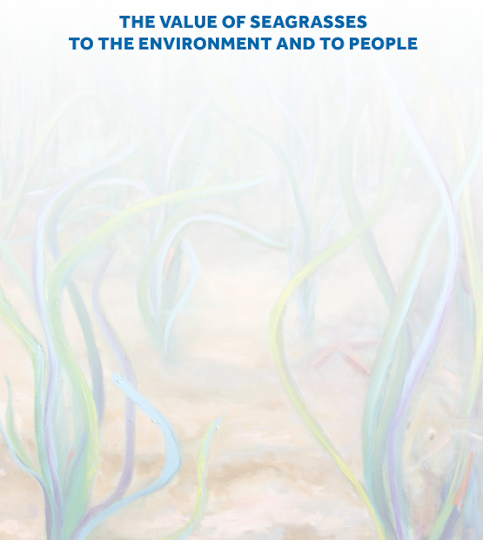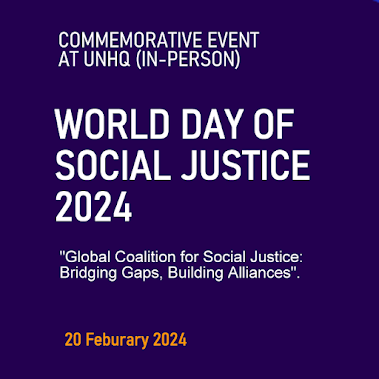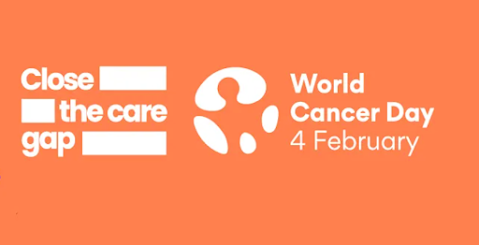FORUM: “
Closing the Gender Gap in Science: Accelerating Action.”
International Day of Women and Girls in Science 2024. Despite the progress made in recent decades, still today only one in three researchers globally is a woman. This persistent gender disparity is the result of the numerous
barriers that female scientists continue to face – lack of role models and mentorship programmes,
disparities in the quality and accessibility of science education, insufficient professional structures and inadequate workplace cultures, and the glass ceiling phenomenon, all of which can discourage girls from pursuing scientific careers and hinder the progress of women in the field. The following discussions will be held on this occasion
- Roundtable 1 - UNESCO Campus - Fostering Girls’ Interest in Science through Innovative Education in the Digital Age.
- Roundtable 2 - Promoting Empowering Work Environments for Women in Science.
- Roundtable 3 - Inspiring Women and Girls in Science through Role Models and Mentors.
Follow the conversations with the hashtags:
#11February,
#WomeninScience;
#GirlsinScience.
EVENTS: The
Royal Academy of Science International Trust (RASIT), co-organizing and co-sponsoring Member States, UN Agencies and Intergovernmental Organizations are
celebrating the 9th International Day of Women and Girls in Science Assembly.AT UNHQ -The
9th International Day of Women & Girls in Science Assembly will bring together women in science leaders and experts from around the world, high-level government officials, representatives of international organizations and the private sector to discuss women leadership in achieving the three pillars of Sustainable Development, namely economic prosperity, social justice, and environmental integrity. Recognizing the role of women and girls in science as agents of change and the importance of mainstreaming a gender perspective in the achievement of the Sustainable Development Goals, the main theme for the 9th IDWGIS Assembly is: "
Women and Girls in Science Leadership – a New Era for Sustainability". Read the
Concept Note and Watch the
Part 1 - International Day of Women and Girls in Science, the
Part 2 - International Day of Women and Girls in Science and the
Part 3 - International Day of Women and Girls in Science.
AT UNESCO HQ - On Friday, February 9th, from 9.30 a.m.to 5.30 p.m. in the Room II. The UNESCO, in collaboration with L’Association fédérative nationale des étudiantes universitaires scientifiques (AFNEUS), will host a full-day event in celebration of the
International Day of Women and Girls in Science 2024. The event will bring together Member States, accomplished and emerging scientists (including the alumnae of the
L’Oréal-UNESCO For Women in Science Programme), stakeholders from the public and private sectors, UNESCO scientific networks and Chairs, as well as students. The event will build on the key findings and recommendations that emerged from the UNESCO Global Forum “The Future for Women and Girls in Science” held in June 2023 and the
AFNEUS “Women in Science” Congress held in February 2022. In particular, it will provide the multi-stakeholder platform:
- To unveil the
UNESCO Call for Action “Closing the gender gap in science” which provides recommendations aimed at
tackling the root causes of gender-based inequalities in science. The Call for Action has been developed based on the contributions from a multitude of stakeholders following the
Global Forum "The Future for Women and Girls in Science".-
To share valuable insights on initiatives, resources, and best practices to put the Call for Action in practice and to discuss ways and means to make significant progress in key action areas, namely: innovative education, empowering work environments, and role models/mentors.
Get the
concept note,
agenda programme and the
flyer of the event.
Gender equality in science is vital for building a better future for all. Unfortunately, women and girls continue to face systemic barriers and biases that prevent them from pursuing careers in science.
This deprives our world of great talent. Today, women make up only one-third of the global scientific community, obtaining less funding, fewer publishing opportunities and fewer senior positions at top universities than men. In some places, women and girls have limited or no access to education – an act of self-harm for the societies concerned, and a terrible violation of human rights.
From climate change to health to artificial intelligence, the equal participation of women and girls in scientific discovery and innovation is the only way to ensure that science works for everyone.
Closing the gender gap requires dismantling gender stereotypes and promoting role models that encourage girls to choose science; developing programmes to support the advancement of women in science; and cultivating a working environment that nurtures the talents of all, including women members of minority communities.
Women and girls belong in science. It is time to recognize that inclusion fosters innovation, and let every woman and girl fulfil her true potential.
António Guterres.
At a time of climate change, green transition and the emergence of new technologies, the world needs more science; but science also needs more women.Yet it is at these crucial moments for our future, when scientists are particularly needed, that gender inequalities in science are most keenly felt. According to the latest UNESCO Science Report, women currently make up only a third of scientists and 37% of ocean science professionals. In all scientific fields women face a glass ceiling. We must realize, however, that society as a whole – and not just women – suffers from these inequalities, because fewer scientists also means fewer scientific innovations, fewer medical discoveries and less sustainable development. Therefore, on this International Day of Women and Girls in Science, UNESCO would like to draw the international community’s attention to these profound imbalances and invite it to seize the opportunity offered by the International Decade of Sciences for Sustainable Development (2024-2033) to strengthen scientific culture in society by focusing in particular on the training of girls and women.Without delay, and as of now, UNESCO is taking action in the field to promote and recognize the talent of women researchers. One example is our flagship L’Oréal-UNESCO “For Women in Science” Programme. The year 2023, which marked the Programme’s 25th anniversary, was an opportunity to pay tribute to the 127 laureates and 3,900 young scientists from 115 countries whom the L’Oréal-UNESCO Prize "For Women in Science" has promoted since its inception. Among them, two researchers were recently awarded Nobel Prizes: Franco-Swedish physicist Anne L’Huillier, winner of the Nobel Prize in Physics, and Hungarian-American biochemist Katalin Karikó, winner of the Nobel Prize in Physiology or Medicine. UNESCO strongly applauds them both once again. Women’s access to scientific careers, however, starts well upstream, from the first years of schooling. Every day, UNESCO is committed to breaking down stereotypes and self-censorship, boosting girls’ self-confidence and giving them a scientific culture and education from primary and secondary school onwards. This is the aim of our partnership with the University of the West Indies (UWI) in Jamaica: together, we have launched the “UNESCO-UWI Walking in Her Footsteps” mentorship programme in science and technology for Jamaican secondary schoolgirls. In addition, through the Capacity Development for Education Programme (CapEd), we have already trained over 2,000 women teachers in science and gender issues in Burundi, Niger and Uganda.
To conduct its work, UNESCO can also draw on the Recommendation on Open Science, unanimously adopted in November 2021 by our Member States, which underlines the urgent need to make science education more accessible and inclusive, particularly with regard to women. To date, 11 countries have incorporated the principles of this Recommendation into their national science policies. In the same vein, UNESCO is helping 10 countries in Europe, Africa and Latin America to apply the principles of the Recommendation in their laws and scientific and educational policies.
On this International Day, society as a whole must unite in support and appreciation of the women and girls who are breaking the glass ceiling, embarking on scientific careers, and moving the world forward through their research.



























